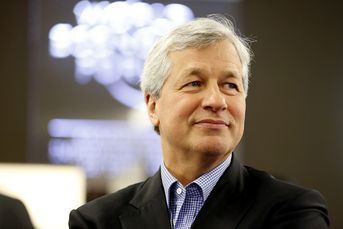Retirement uncertainty and the advisor shortfall

The rational, eat-your-vegetables approach to retirement peace of mind only goes so far. Advisors must become more adept at helping clients to prepare emotionally.
It’s no secret that retirees and pre-retirees are anxious. Persistent inflation, uncertain markets and, especially for those still working, fears of recession are rattling the millions who comprise the advisory market’s demographic sweet spot.
Advisors are aware of this anxiety but probably underestimate how pervasive it truly is. That’s because their clients generally are better prepared than the vast majority of those in the 50-plus age group who don’t have the benefit of professional financial advice.
One result of the widespread anxiety is that a quarter of pre-retirees, defined as non-retired investors aged 55 to 65, are delaying retirement. Another 15% aren’t sure if they will ever retire, according to a study by insurer Nationwide. The working-longer phenomenon coincides with a return-to-work trend among retirees who find they need the income to pay for unanticipated expenses and higher-than-expected costs of health care and taxes, to name two major problem areas. Many retirees also return to work because they’re bored with a retirement that’s much less fulfilling than what they expected.
Since even many affluent about-to-be retirees are anxious about retirement because they realize their lifestyle requires high levels of spending, a highly desirable pool of potential clients awaits advisors who can address retirement anxieties. But how can advisors effectively do that?
Having a financial plan, allocating wisely and investing for the long term are all necessary and effective in helping a client retire comfortably and allaying their fears of running out of money. But the rational, eat-your-vegetables approach to retirement peace of mind only goes so far. Advisors must also become more adept at helping clients prepare emotionally for retirement and the many major and minor adjustments that entails.
Many advisors, and especially those who came up through the brokerage channel, may feel uncomfortable and ill-equipped to explore nonfinancial issues that drive the investment decisions of clients. Some may even be dismissive of the process, contending they’re not psychologists.
So here’s an idea for the business: Why not hire psychologists, social workers or other “helping” professionals who are seeking a second career and train them in financial basics? Could bringing on older newbies experienced in ferreting out motivations, who could then work with experienced advisors in coming up with investment solutions, be any worse than the industry’s current approach to meeting its pressing demand for more advisors?
Consider that total advisor head count grew by just 2,579 last year, while the failure rate among rookie advisors was more than 72%, according to a recent report by research firm Cerulli Associates, which also found that 69% of rookies are responsible for building their own client base from scratch. Those figures — along with who knows how many potential clients there are wanting to speak with someone who understands their fears — underscore that the time has come to divorce rainmaking from advice.
SECURE Act 2.0 a bright spot in America’s cloudy retirement future
Learn more about reprints and licensing for this article.







